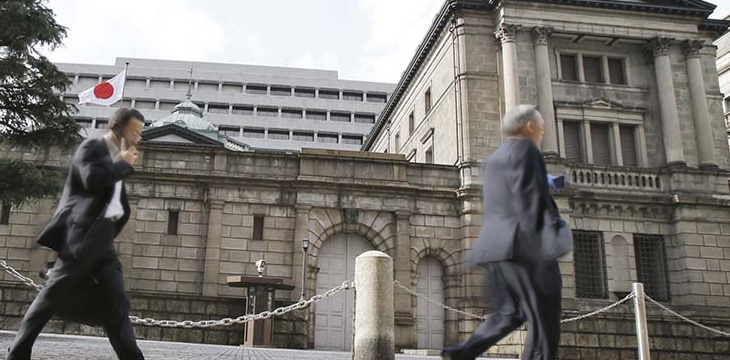|
Getting your Trinity Audio player ready...
|
Bank of Japan’s deputy governor likens it to allowing private individuals to each have an account with the central bank.
In his closing remarks at the conference with the International Monetary Fund and Japan’s Financial Services Agency on Monday, Bank of Japan’s deputy governor Masayoshi Amamiya says there are currently no plans for a central bank-issued digital currency.
Acknowledging the far leap financial technology has made since only a decade ago, Amamiya says recent developments are calling for a reassessment of the central bank’s role in supporting new financial instruments.
“These issues also stimulate global discussions on to what extent central banks should provide their payment and settlement infrastructures to society. I would like to elaborate on these issues further,” he said.
He goes on to explain what implications a central bank-issued digital currency would entail—something that will substantially disrupt the current two-tiered banking system. The current infrastructure is structured so that it is regulated overall by a central bank, which only deals with the second tier—private banks, who in turn deal with individual consumers.
“The modern currency system, which consists of a central bank and private banks, is characterized as ‘a two-tiered system,’” Amamiya said.
Creating a central bank-issued digital currency, according to him, will change that infrastructure into one where intermediating private banks are taken out of the equation, and consumers are directly under the central bank’s wing.
“In this regard, the issuance of central bank digital currencies for general use could be analogous to allowing households and firms to directly have accounts in the central bank. This may have a large impact on the aforementioned two-tiered currency system and private banks’ financial intermediation,” he said.
“Under the current system, the central bank allows direct access to its accounts only to a limited number of entities such as private banks.”
Such a restructure warrants a deeper understanding of the new terrain, he said.
“To sum up, IT innovation raises many fundamental questions and challenges related to the currency system, the design of central bank infrastructure and the utilization of information attached to economic activities. I sincerely hope our understanding of these issues will be further deepened in the future.”
To further understand the implications of blockchain technology, Amamiya said that the central bank has launched projects specifically for that purpose, adding that the Bank of Japan has no plans of creating its own digital currency but may apply the technology in its own infrastructure later on.
“In 2016 the Bank established its ‘FinTech Center.’ The Bank has also been conducting a joint research project called ‘Project Stella’ with the European Central Bank to study the potential of distributed 4 ledger technology. Although the Bank of Japan does not have a plan to issue its own digital currency at this juncture, the Bank fully acknowledges the importance of deeply understanding innovative technologies not only for maintaining financial stability but also for seeking the possibility of applying them to central bank infrastructure in the future. Central banks should always be attentive to on-going innovation, and continue making efforts to provide the best infrastructure to society in accordance with the development of technologies,” he explained.

 02-18-2026
02-18-2026 




